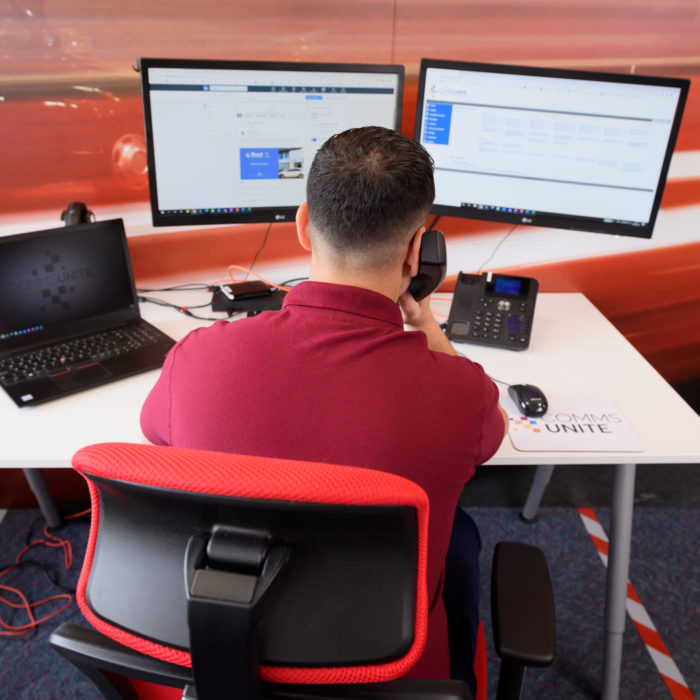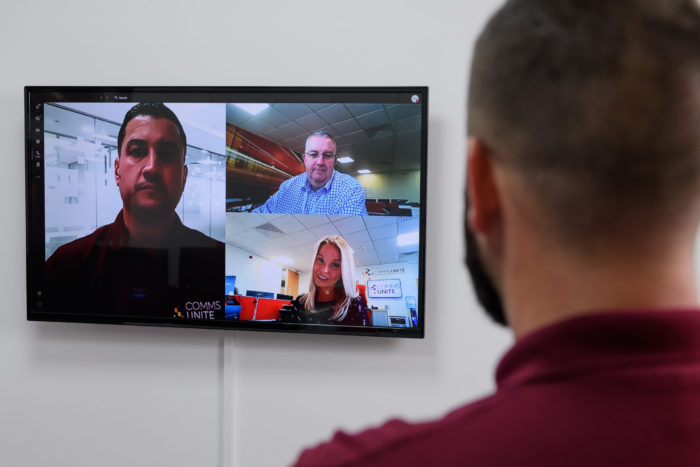
The 5 Big Security Risks of Working From Home (and How to Avoid Them)
The security risks around working from home have been on every business-owner’s mind since lockdowns began in March 2020. With restrictions recently lifted across the UK, employers now face decisions about how and where their staff work, with many considering alternatives to a simple return to the office.
The home-working trend is here to stay, with possible benefits to both employees and businesses. But have you covered all the possible risks to your business due to staff working from home?
Cyber security when working from home
Home-working during the pandemic showed that the traditional office-based environment isn’t always vital for success. In fact, a large number of employees thrived at home, as outlined in this survey by Global Workplace Analytics.
With this in mind, many companies are now looking at either a hybrid of home and office time to foster a happier workforce, or even allowing staff to continue working remotely, enabling firms to scale down their bricks and mortar premises and cut operational costs.
The level of risk and the number of concerns you may have about remote working security could largely depend on your industry or business sector. Granting remote access to sensitive data and customer details can carry a great deal of responsibility, especially if you work in the legal fields, accountancy, customer services, finance, insurance, real estate and other sectors that routinely handle highly personal information.
While your staff are based in the office, you can be reasonably certain of your own security measures, firewalls, database access, virus protection and document visibility. However, at home, the same precautions might not be in place. What can go wrong?

Security risks of remote working
Most risks are caused by simple bad habits. In their own home, employees might admit to feeling less under the watchful eye of the IT department and naturally more inclined to live by their own rules. These habits may not seem like a big deal to employees on a day-to-day basis, but can lead to a false sense of security and create vulnerabilities in your systems. The five main problems to bear in mind are:
Also, on a non-technical level, there are potential physical risks to the security of business information. Monitors or device screens may be visible to partners, family or visitors, who might also get to overhear sensitive conversations. While this falls outside of the realm of IT, the security of a worker’s environment does influence how well your IT measures will work, and is something all businesses need to consider.

What threats could this make you vulnerable to?
With your systems possibly open to attack due to gaps in online security while staff work from home, the five biggest security threats you face could be:
Working from home security best practices
There are a number of measures you can employ to ensure your employees are operating in a safe and secure way when they work remotely. The below lists are not exhaustive, but provide ideas that should be quick and easy to put into practice.
Working from home: recommendations for employers
- Define and document your WFH security policies – put your rules and recommendations in writing for things such as passwords, use of personal emails, etc. Sharing this openly with all employees is the best first step to raising awareness and getting everyone working for you on the same page when it comes to online security when working from home.
- Ensure your staff use business devices for work – this way, you can be sure your employees are working in a more secure environment and supported by company-wide anti-virus software.
- Ensure staff use a VPN to access business systems – a virtual proxy network provides a vital secure barrier. This needs to be set up properly by professionals and the security patches updated regularly.
- Introduce 2FA for all access to business platforms – vital to ensure that those logging on to your systems are who they claim to be. There are a number of trusted authenticator apps to choose from online, such as those provided by Google or Authy, for example.
- Train staff on all the potential threats – when people know how to spot phishing emails, deal with potential malware situations and generally keep commercial or personal data safe, your business will be inherently more secure at its core.
In addition to the above, you might require more support in the rare unfortunate cases where you need to remove an employee’s access when they leave your company. This will be necessary to prevent access by any unauthorised third parties (known or unknown) if their details fall into the wrong hands.
Working from home: top tips for employees
- Install anti-virus software – it seems obvious, but it’s worth re-stating the importance of having internet security present on the devices you use for business at home, and keeping it updated. New viruses and malware are introduced to the world wide web every day.
- Keep devices secure – make sure screens are not visible to friends, family or visitors, or that devices can’t be tampered with by children. For mobile devices, you should also enable the functions to find them and wipe them remotely in case they get lost or stolen.
- Practice camera security – pay attention to when your laptop camera or separate digicam is turned on, and what is visible in the background. To make sure you are not inadvertently being spied on by hackers, you can cover the lens or unplug the camera when not in use.
- Use a password manager – this provides a safe and easy-to-use way to keep your passwords strong, secure and unique. Too many people use the same password for a host of various applications, accounts or websites. A password manager means you can have different passwords for each activity without having to remember them all. But you’ll need to have a 2FA app!
- Isolate your network from Cloud-based streams – is your home network also linked to communications or entertainment providers like Nintendo Switch or RingCentral? These could provide hackers with seemingly innocent ways into your network.
In addition to the above, you can take extra measures to secure your Wi-Fi. As well as changing the password, SSID and name of your network by logging into the settings to make it more difficult for criminals to identify and access your network, you can limit access and enable network encryption.
This can become very technical. Never hesitate to ask for assistance from your firm’s IT support, and always make sure all software updates are running automatically.
Want to be sure your business and employees are protected?
Are you considering giving staff more flexibility to work from home, or perhaps even switching to a completely remote workforce? Give us a call on 01473 599020 or email hello@comms-unite.co.uk to find out your options for making your systems secure.
We’re here to get it done, and won’t stop until everyone’s happy.



